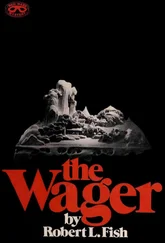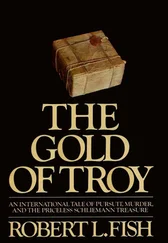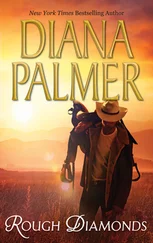“Next week!”
Andries studied Barney some more. “Look, boy. Your folks know you want to go to Kimberley?”
“Me folks are in England, but they know.”
Andries shrugged, making up his mind. After all, the boy looked to be over sixteen and in that country that made him a man and able to make his own decisions. And he might even be of some use on the long trek, someone to talk to if nothing else, although Andries was quite used to talking to his oxen if need be to pass the time. “All right, boy. You can come.”
“Five quid, ain’t it?” Barney started to reach for his purse.
“No hurry for that.” Andries continued to study the boy. The five pounds normally charged by an ox wagon to allow a person to walk beside it while it carried his luggage on the two-month trek did not include food. Andries was sure the boy had no notion of this. Ah, well! in for a shilling in for a pound. It would be his charitable contribution to the lad. “We leave at seven in the morning. Be on time.” He turned and dug a pipe from his pocket, stared at it a moment and then realized he would be going back to sleep in a few moments, and put it back. “You got a place to sleep tonight, boy?”
“Yes, sir. A room down by the docks.”
“Good. Tomorrow at seven, then.” Andries squatted, prepared to return beneath the wagon for his rest, and then looked over his shoulder. “You can leave your bags here. They’ll be safe.”
Barney hesitated, but only for a moment. He had the feeling the big man was testing him, somehow. Anyway, he was going to be with the man a long time, and mutual trust was going to be necessary; might as well start right now. “Sure,” he said easily, as if he left his bags with strangers all the time. “Where d’you want them?”
“In the wagon. In front with the crates; there’s no room in the back. And tie up properly when you’re done.” Andries thought a moment and then came to his feet. “Better let me.” He untied a corner of the canvas, lifted the bags, and placed them where he wanted them, retying the rawhide thongs carefully when he was done. He looked at Barney with a faint frown. “What you got in them suitcases, boy? Rocks?”
“Books, mostly,” Barney said. “Plays.”
“You an actor, boy?”
“I wanted to be,” Barney said quietly, and changed the subject. “Tomorrow at seven, then.”
“Right,” Andries said. He got down and crawled under the wagon. He started to lie down and then raised his head. “You got a name, boy?”
“Barney. Barney Isaacs.”
“Right. You call me Andries. See you tomorrow, boy.” His head went down; the hat was pulled over his face.
Am I an actor! Barney thought as he walked away. A bloody good ’un, if they’d have ever given me a bloody chance! He grinned to himself, happy that he’d gotten transportation to Kimberley. Anyway, on the second and third acts. The thought made him laugh.
The twelve oxen, six on either side of the long disselboom, strained up the tilted slopes leading from the town, around the western base of Table Mountain toward the Drakenstein Valley leading to Parow where the road would split, one branch leading westward to Milnerton and Caledon and eventually all the way to the Kalahari and Windhoek and the strange unknown lands beyond. Another branch led to Stellenbosch to the east and in time to Mossel Bay and to Durban on the Indian Ocean. The main trail — for it was little more than a trail — led north across the Karroo desert to Beaufort West and Bloemfontein, Kimberley, Pretoria, and beyond. Except that very few people other than hunters or adventurers ever went very far beyond Pretoria.
They left Riebeeck Square in tandem with three other ox wagons, all with different destinations, the four gradually spreading apart to give the dust between them a chance to settle. It was a vain maneuver; the dust was regenerated almost at once as faster mule trains and coaches passed them on the trail, their passengers looking down from their perches in superior fashion at the less fortunate ones trudging along beside the ox wagons. Behind them the city spread below in panorama with the wide bay beyond, gradually disappearing as they advanced around the spur of the mountain and up toward the valley with its orchards and farms. Barney took one last look at the lovely view and then turned to face the front, gritting his teeth at their slow pace. I must have picked the slowest bloody wagon in the entire bloody country, he thought almost savagely. Turtles could pass us, the rate we’re going! I should have taken the money Mr. Breedon offered; after all, he said he won it on me. But he shouldn’t have taken the money from Breedon and he knew it. It wasn’t his style and style was important to Barney Isaacs.
Andries, walking steadily along on the other side of the swaying wagon and glancing across the tightly drawn canvas at the scowling boy every now and then, could almost read Barney’s mind. He wants to run now, Andries thought; he can’t wait to get to the diamond fields. Well, it’s always that way at the start of a long trek; wait until we’re crossing the Karroo and he has more important things to worry about, like sore feet and keeping the wagon going. Then we’ll see how much of a rush the boy will be in. That will tell us quite a bit about this lad!
“We’ll get there, boy,” he said, almost as if he were speaking to himself. “Maybe faster than some.” And he cracked his sjambok over the ears of the oxen, who neither hurried their pace nor reduced it, as if they were well aware that Andries would never actually touch them with the thin, deadly whip.
Barney said nothing, but marched steadily along. Six hundred bloody miles to go, at what he guessed would only be ten or twelve miles a day, and that was if they were lucky. Two bloody months! There were mountains to cross, and rivers, and perhaps — although the proprietor of the rooming house had smiled faintly when he said it — angry tribes of natives. That last was probably nonsense, but the mountains weren’t, nor the rivers. Still, there was nothing for it but to accept it and hope he could make up the time in getting rich once he eventually reached Kimberley. If the bloody diamonds weren’t really all gone by then! But there was no purpose in thinking of that. Better to use the time on the long trek to some constructive and—
“ ‘I know not ’ow to tell thee ’oo I am; me name, dear saint, is ’ateful to meself—’ ” He caught Andries’ curious eyes upon him across the wagon. “Romeo and Juliet,” he said defensively. “It’s a play. Wrote by a bloke named Shakespeare.”
“Oh,” Andries said, and cracked his whip.
They paused at eleven in the morning, the sun high in the almost white sky. Andries brought the team from the trail and began to unhitch them. Barney stared. He thought he had noticed a commiserating look from Andries every now and then over the past hour.
“Look,” he said half angrily, “if yer stoppin’ because you think I’m beat, well, I ain’t. I can walk all day and then some!” Good God! Stopping at eleven in the morning after less than four hours on the way? The old man don’t look that tired and neither do the animals. At this rate we’ll never bloody get to Kimberley!
“Barney, boy,” Andries said calmly without stopping his out-spanning of the team, “let me tell you something about the Cape ox. You take him when he’s a bull calf and you castrate him—” He glanced at Barney. “You know what castrate means, boy?”
“Sure. You cut off his knockers.”
“More or less. Anyway, then he becomes a steer. Wait a few years and he becomes an ox. You castrate him to make him quieter and easier to work, but you owe him something for that. You owe yourself something, too, if you want a healthy animal.” He finished unhitching the final animal and watched it wander off to graze. He squatted down, tracing his finger in the soil a moment, watching the animals at their grazing, and then looked up at Barney. “Now,” he went on, “if you want the best from your oxen — if you don’t want them to lie down and die on you and leave you a long way to go and no way to carry your water or your mealies or your biltong — then you treat your animals right. You don’t work them more than eight hours a day, and six or seven is better, with a break at midday. An ox needs eight hours to graze and eight hours to sleep and chew his cud.” He suddenly smiled. “Probably work as well for a man if a man cared as much about himself or his Kaffirs as he does about his ox and his wagon.” He tilted his head, coming to his feet. “Come over here.”
Читать дальше










